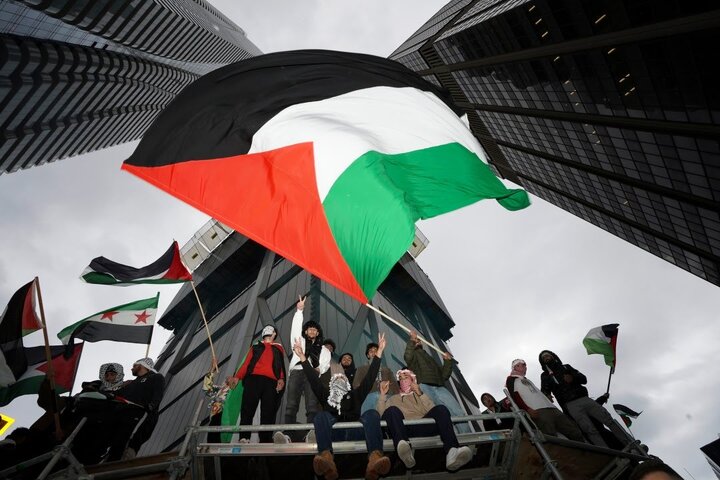Iran (IMNA) - The regime, which was established under the banner of Western powers, is now on the brink of collapse due to a combination of intelligence-security failures, the collapse of its deterrence capabilities, coordinated attacks by the Resistance, and a deepening political and economic crisis.
The Nakba, or "catastrophe," refers to the events of May 15, 1948, when the Zionist regime was formed, leading to the occupation of approximately 80% of Palestinian territory and the brutal slaughter, expulsion, and displacement of 70% of the Palestinian population. In the aftermath, at least 15,000 Palestinians were martyred, and 750,000 were forced to flee their homes, accounting for more than half of the population of Palestine at the time.
Over the past 76 years, the Zionist regime's "killing machine" has never stopped, with massacres, organized disasters, and the occupation of neighboring territories. More than 150,000 Palestinians have been directly shot by the Zionists, and in the past 220 days alone, during the regime's war against the Gaza Strip, over 35,000 innocent Palestinians, two-thirds of whom were women and children, have been victims of the regime's crimes and ethnic cleansing.
However, the Zionist regime is now facing a series of crises that threaten its very existence. The failure of the project to move Zionists to the occupied territories has become increasingly evident, with many Zionists unwilling to reside in these areas and those who do seeking opportunities to leave. The reverse migration wave has intensified due to fears of Resistance attacks, with some 80,000 settlers in the north of the occupied territories not returning to their settlements due to Hezbollah's attacks.
The economic situation of the Zionist regime has also deteriorated significantly, with a fourfold increase in the unemployment rate, a fall in the stock exchange, a sharp decline in the value of the regime's currency, the flight of domestic and foreign capital, and a multi-billion dollar reduction in foreign reserves. The ongoing attacks by the Yemeni army have also added significant costs to the regime's operations, further exacerbating its economic woes.
As the economic and livelihood problems intensify, the Zionist regime's security has also been exposed, with the inhabitants of the occupied territories living in constant fear of the missiles of the Resistance. The combined attacks of the Resistance Axis from Iraq, Syria, Lebanon, Yemen, and Palestine have pushed the regime to the brink of collapse, while the missile-drone response of the Islamic Republic of Iran during Operation True Promise has shown that the "black days" of the Zionist regime have arrived.
The Nakba Day of 2024 marks a significant turning point, as the Zionist regime faces an entangled clutch of crises that threaten its very survival. The regime's intelligence and security failures, the collapse of its deterrence capabilities, the coordinated attacks by the Resistance, and the deepening political and economic crisis have all contributed to the regime's precarious position. As the world continues to condemn the Zionist regime's crimes and recognize the rights of the Palestinian people, the future of the regime hangs in the balance.


Your Comment